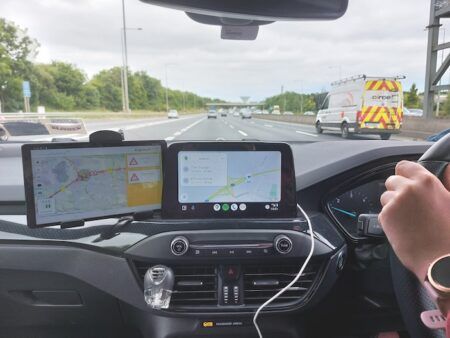Shailen Bhatt, executive director at Colorado Department of Transportation, will be speaking at the Autonomous Vehicle Safety Regulation World Congress, taking place from October 23-24, 2017, at the US city of Novi, Michigan. Before hand, he considers some of the implications around autonomous vehicle regulations.
When should federal regulations for autonomous vehicles be introduced?
That’s a difficult question to answer – as it all depends upon the “regulations” being considered. We are at the very beginning of this autonomous vehicle journey and we still don’t have a good understanding of what “regulations” will be helpful and what would be a hindrance.
We in Colorado have heard loud and clear from our industry partners that what they need at this time is flexibility.
My recommendations for federal involvement would be more of a wait and see approach – Industry is financially motivated to make autonomous vehicles work.
Imposing regulations on them now with our limited understanding of how these systems will work could stifle the growth and deployment of these technologies.
We want these technologies sooner than later. They will make our roads safer and allow us to better utilize our existing assets.
At the end of the day it’s my job as the executive director is to encourage the use of advanced technologies and do it in a way that enhances the safety on our highways.
Several companies are pursuing a design of an autonomous vehicle without a steering wheel, should testing of such vehicles on public highways be allowed in all states now?
Another good question – you know I’m the executive director in Colorado and Colorado is known as the the Centennial state as it was granted statehood 100-years after the United States declared its independence.
Also about 100-years ago “horseless carriages” or as we call them vehicles started to become prevalent – I can envision the same question being asked back then “should these horseless carriages be allowed on the streets of Denver”.
But getting back to your question – the important word in our question is “testing”.
In Colorado we believe any “testing” that is done on our highways should be done after state governmental organizations such as CDOT and the Colorado State Patrol have reviewed their plan and their Operational Design Domain (ODD) and determined the testing is safe.
That’s what we did in Colorado with the world’s first delivery in an autonomous truck (the driver was in the sleeper compartment, monitoring the trip). However, I suspect the companies you’re talking about have done lots of “testing” in controlled environments and are now looking to “demonstrate” the functionality of their technology in real world environments.
I support the demonstration and deployment on public highways of technologies that have been through sufficient “testing”.
What is the main obstacle impeding the creation of autonomous vehicle legislation?
The simple answer is “a lack of understanding”. You’re talking about trying to put legislation around something that doesn’t exist just yet.
My crystal ball is not that clear when it comes to looking into the future sometimes – heck, I sure didn’t see the presidential elections turning out the way they did so I may not be the best person to discuss the future when it comes to legislation around a technology that doesn’t exist yet.
I think Colorado took the right approach this year when we passed autonomous vehicle legislation that didn’t try to answer every question that may come up in the next decade, but instead tried to address just a few things- and we did it in a way that protects the safety of the traveling public while encouraging innovation.




